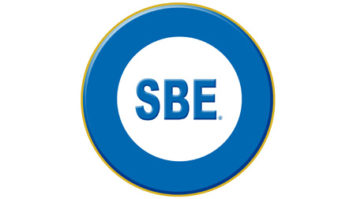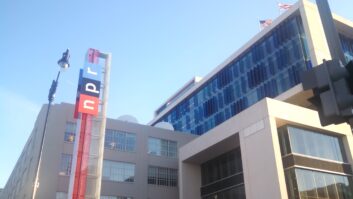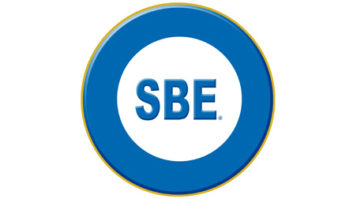WASHINGTON
A move by the Federal Aviation Administration to privatize its Flight Service Stations has generated concern among some broadcasters about the competence of the contractor hired to collect and disseminate “Notice to Airmen” reports.
NOTAMs are filed when broadcasters discover that towers are not properly lit because a light or lights have gone out. A broadcaster is required to contact the FAA of an outage and again when the problem has been corrected.
Privatization may be saving the government money but it has lead to complaints from broadcasters. Issues include the timeliness of NOTAMs appearing in general aviation pilot briefings and lack of communication regarding the use of a new nationwide toll-free telephone number to report obstruction lighting outages, according to engineers contacted for this article.
The FAA contracted with Lockheed Martin in 2005 to provide services offered by the agency’s automated flight service station (AFSS) system. FAA spokesman Paul Takemoto acknowledged that some concerns have been raised since Lockheed Martin began an aggressive schedule of facility consolidations this summer.
The company “has had problems ramping up as they consolidate the 58 Field Service Stations down to 17 with three main hubs,” he said. “Anytime you have a major consolidation going on you can expect a few problems. There have been some wait time issues. We believe Lockheed Martin has addressed many of those issues and improved upon them.”
The three AFSS hubs are in Washington; Ft. Worth, Texas; and Prescott, Ariz.
Lockheed Martin issued the following statement from its Seattle AFSS office in August: “We acknowledge that our transition from the FAA to Lockheed Martin has caused some frustration among our customers. We are diligently working to resolve issues that have caused inconveniences.”
Complaints
Nevertheless, the closure of the AFSS offices has spurred complaints among several broadcast engineers.
Some have complained about local AFSS offices shutting down without any notification. Others are concerned about delays in the dissemination and cancellation of NOTAMs, which could cause pilots to have inaccurate information after filing their flight plans. The obvious danger is the increased risk of an aircraft colliding with an unlit tower, they say.
Other engineers worry that the new system could be overloaded as a result of inclement weather or emergencies.
Lowell Kiesow, chief engineer for three non-commercial stations in Tacoma, Wash., said of the FSS outsourcing, “It is worse than the government, it’s a government contractor!”
The consolidation has resulted in the FAA using a single, nationwide phone number for broadcasters to call to report outages. Broadcasters’ calls are now directed to one of the three Lockheed Martin hubs instead of local field offices.
“I miss the localism when we were reporting to folks who knew the area,” said Bill Croghan, chief engineer for Lotus Broadcasting in Las Vegas. “Even though my reporting AFSS was in Reno, they had at least some idea of the Las Vegas area airports. However, I’m all for privatization if it results in a more efficient service at a savings to taxpayers.”
The outsourcing is expected to save the government money. According to the FAA, the total evaluated cost of the Lockheed Martin contract — five years plus five option years — is $1.9 billion, with estimated savings of $2.2 billion over 10 years.
Some broadcast engineers worry that the consolidation is driven by cost-cutting rather than by efficiency, which will de-emphasize what is regarded by many as an important service.
Larry Estlack, director of technology for the Michigan Association of Broadcasters, said broadcast engineers in his state understand the importance of the NOTAMs being handled properly.
“They know the importance of flight safety and feel uncomfortable with the new system,” Estlack said.
Estlack said he only became familiar with the NOTAM changes “after an engineer called me to say the phone number he calls for tower light outages had been disconnected.”
NOTAM changes
“As soon as I found out I sent an e-mail to every station in the state notifying them of the change,” Estlack said.
Estlack said he and other broadcast engineers want to make sure that pilots “have the information they need to fly safely.”
Clear Channel Radio issued an advisory to its engineering staff of the NOTAM filing changes, said Michael Golchert, AM field engineer for Clear Channel.
“The information we passed along was based on generally less-than-stellar experiences with outsourced call centers in the past whose employees do not grasp the seriousness of the information that they are receiving,” Golchert said.
“Part of our frustration may well be because many of our engineers had a personal connection with the local Flight Service Station that closed.”
The FAA did not reply to questions regarding the lack of communication with broadcasters in regards to the telephone number change for reporting NOTAMs.
“The FAA nationally did not, to my knowledge, provide any information to broadcasters that the change was happening,” Golchert said. “My understanding is that the FAA in Washington left the dissemination of the new procedure to the local FSS, and that is where the information stopped.”
Clear Channel’s memo reminds its broadcast engineers to note the date, time and initials of the person taking the information for the NOTAM.
The FAA’s nationwide phone number to log all tower light and obstruction system malfunctions and outages is (877) 487-6867.
The FAA issued a press release in August that establishes a “Flight Service Station Feedback Line” with a toll-free telephone line number for pilots and others to post comment on services they receive from Lockheed Martin flight service facilities. It said customer feedback will be gathered to “ensure that the flight service stations operated by Lockheed Martin meet agency standards.”






